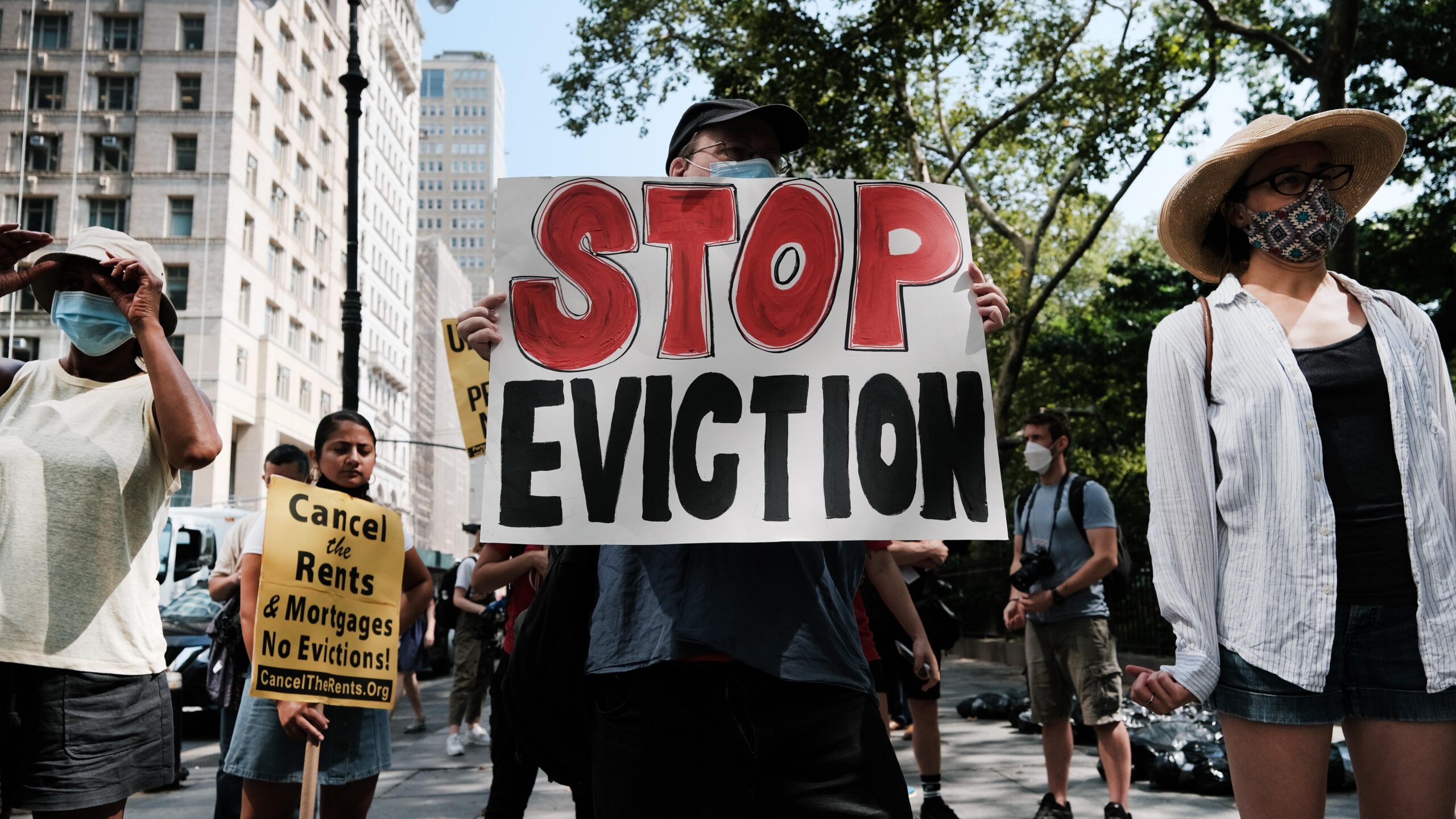The U.S. Supreme Court rejected the Biden administration’s eviction moratorium, a decision that puts millions of Americans at risk of losing a roof over their heads. Activists and lawmakers, led by Rep. Cori Bush (D-Mo.), had urged President Biden to extend the moratorium, even if the legalities of such a move were seen as questionable.
Suggested Reading
In the majority opinion, the Court said that the Centers for Disease Control exceeded its authority, according to the New York Times.
“The C.D.C. has imposed a nationwide moratorium on evictions in reliance on a decades-old statute that authorizes it to implement measures like fumigation and pest extermination,” the opinion said. “It strains credulity to believe that this statute grants the C.D.C. the sweeping authority that it asserts.”
The court’s three liberal justices dissented, however, with Justice Stephen G. Breyer, faulting the court for its haste.
“These questions call for considered decision-making, informed by full briefing and argument,” he wrote. “Their answers impact the health of millions. We should not set aside the C.D.C.’s eviction moratorium in this summary proceeding.
Unlike the earlier moratorium, which had applied nationwide, the latest one was specific to counties where COVID-19 was strongest, which covers some 90 percent of counties in the United States.
Here is more on the fallout of the SCOTUS decision, per the Times:
The Biden administration and other moratorium proponents predicted that the decision would set off a wave of dire consequences.
“As a result of this ruling, families will face the painful impact of evictions, and communities across the country will face greater risk of exposure to Covid-19,” Jen Psaki, the White House press secretary, said in a statement.
The ruling also renewed pressure on congressional Democrats to try to extend the freeze over the opposition of Republicans.
“Tonight, the Supreme Court failed to protect the 11 million households across our country from violent eviction in the middle of a deadly global pandemic,” said Representative Cori Bush, a Missouri Democrat who slept on the steps of the Capitol this month to protest the expiration of the previous moratorium. “We already know who is going to bear the brunt of this disastrous decision: Black and brown communities, and especially Black women.”
The Times reports that it will likely take some time before the backlog of eviction cases across the country actually displaces renters. Tenant groups in the South are bracing for the worse because fast-track evictions are common there.
The Biden team had been figuring out how to respond to a likely SCOTUS ruling against the moratorium, with a focus on a handful of states—including South Carolina, Tennessee, Georgia and Ohio—which have renters who have not been able to pay landlords and few state-level protections for them.
The Biden administration concluded at first that the SCOTUS ruling in June had prevented them from carrying out a new moratorium after an earlier one expired in July. SCOTUS ruled in favor of a moratorium 5-4, but Justice Brett M. Kavanaugh wrote that he believed the moratorium was unlawful and that he had only supported it to allow an orderly transition. He made clear he would not support another extension without “clear and specific congressional authorization (via new legislation).”
Congress didn’t act and the Aug. 3 extension SCOTUS ended Thursday only took place after pressure from Democrats and a new COVID-19 surge.
In states like California and New York, where the politics are more liberal, local moratoriums have been extended, which provide some additional protections for renters. Judges in some municipalities have said they would slow-walk cases and make use of eviction diversion programs, the Times notes, because they are aware of the number of people who would potentially end up on the streets during a pandemic.
Straight From 
Sign up for our free daily newsletter.



